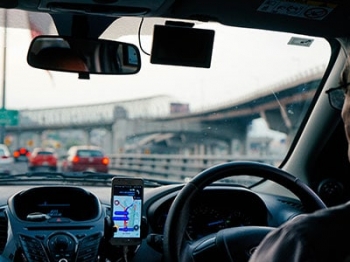Understanding the risks and opportunities of digital evolution
Technology is a crucial component of economic development in South Africa. However, we need to understand the risks and opportunities that come with the rapid advances of the Fourth Industrial Revolution (4IR) and the implications for building a capable developmental state in South Africa. Edward Thabani Mdlongwa discusses some of the concerns.
South Africa's effort to build a capable developmental state requires a balance between moving forward economically in an ever-globalising world and trying to redress the issues of inequality and economic injustice of its apartheid past.
According to the Africa Governance Institute, capable developmental states act “with authority, credibility and legitimacy to meet the needs of their people in social justice, accountability, and job creation, and they promote human capacities, private investment and industrialisation”.
In this regard, the 4IR brings opportunities and risks.
Digital capitalism
Prof. Dan Schiller, a telecommunications historian at the University of Illinois at Urbana- Champaign, describes digital capitalism as “an ideologically invisible framework that is realised through technology”. It is seen as a new form of capitalist exploitation by big firms, globally, through the development and use of technologies for huge capital gains and profits, at the expense of the poor.
With the emergence of the 4IR, digital capitalism has become more prominent. One of the great debates of the information age is whether or not it is leading to greater inequality in a general sense, and, more specifically, within South Africa.
Platform capitalism
The Canadian writer Dr Nick Srnicek, a lecturer in digital economy at King’s College in London, writes that with the decline in the manufacturing industry profits, capitalism has turned to the use of technology platforms, such as Uber, Google, Airbnb, Amazon and Facebook, as a way to maintain economic growth. He calls it platform capitalism, a way of doing business that involves recruiting large numbers of people who work for themselves using a company’s platform. The business model is premised upon bringing different groups together. Facebook and Google connect advertisers, businesses, and everyday users; Uber connects riders and drivers; and Amazon and Siemens are building and renting the platform infrastructures that underlie the contemporary economy.
Risks and opportunities
The implications of digital capitalism for South Africa revolve mainly around its potential impact on employment and social inequalities.
For example, the introduction of the Uber platform has caused disruption in the traditional metered taxi industry, resulting in violent protests by the metered taxi drivers, who feel their livelihood is being taken away. On the other hand, the Uber platform has created opportunities for new entrants into the taxi industry in South Africa. This is in line with current literature, which suggests that platforms will grow substantially in emerging economies, creating new employment opportunities, particularly for those engaged in informal work, but disrupting current job opportunities.
Platforms enable new forms of mobility for the young, educated people in urban areas. However, regulation is needed, as the current system privileges platform owners at the expense of workers’ wellbeing. Uber’s headquarters are in the USA. So taxi drivers who use the platform here don’t have workers’ rights, are not part of a trade union, and can be easily exploited.
Benefiting the north at the expense of south countries
The implication of digital capitalism is that institutions engage users and customers in an exploiting way, according to a paper entitled Characterizing digital disruption in the general theory of disruptive innovation that Assoc. Prof. Louise Møller Haase from Aalborg University in Denmark and others presented at the 2017 ISPIM Innovation Conference in Austria. The digital domain allows the use of technologies and big data as part of a disruptive strategy for huge capital gains and profits at the expense of the poor.
For example, actors in the global north do not invest in human capabilities in the south. Intangible assets such as ideas, brands and images, end up being monopolised to the benefit of the north only, yet the firms would have exploited labour in the south. Uber, to some extent, is a classic example of this.
A capable development state should protect its citizens from exploitation by large multinational firms and ensure that profits are shared in a more active way. Companies such as Uber should remit some of their large profits and pay taxes in the countries they operate.
Way forward
The 4IR presents opportunities and risks that can be managed to benefit countries and their economies, provided that governments take proactive measures. To harness the potential benefits and opportunities of the 4IR in South Africa requires policy clarity, especially for preventing monopolies from emerging through digital or platform capitalism. Strict regulation is needed for platforms and new entrants, including Uber, to ensure tax regimes that benefit the local economy and support the creation of employment and labour conditions for these workers. South Africa also needs to implement changes in its education curriculum to include digital skills and literacy from a young age. Investment in the training of blue-collar and low-level workers is also needed, to equip them with skills for the digital age.
Contact: Edward Thabani Mdlongwa, researcher in the HSRC’s Democracy, Governance and Service Delivery research programme
tmdlongwa@hsrc.ac.za

